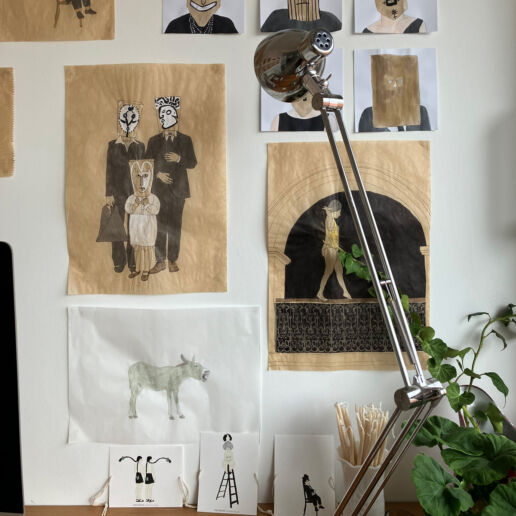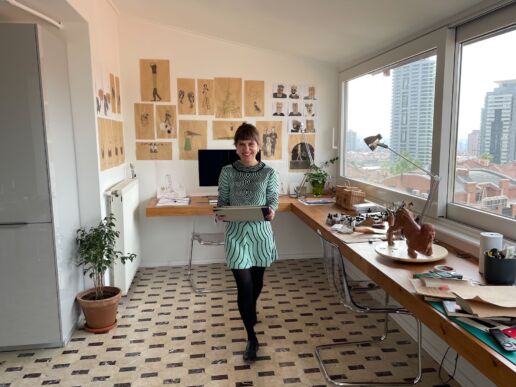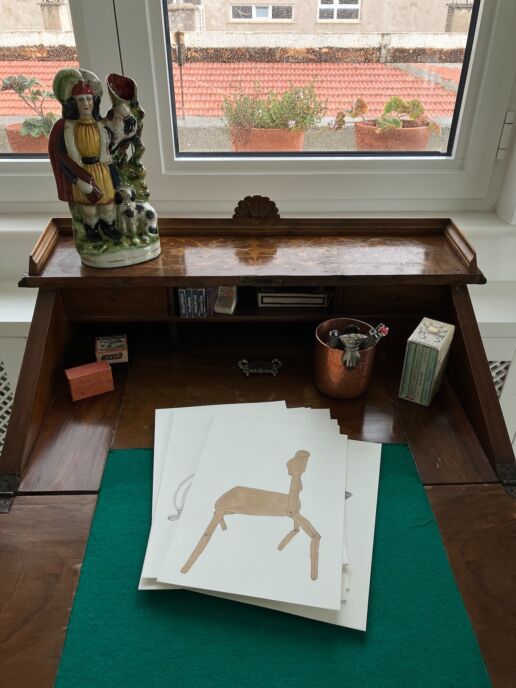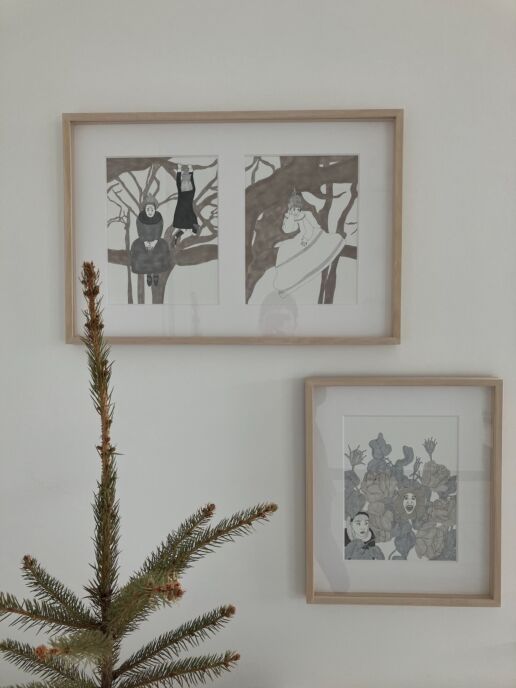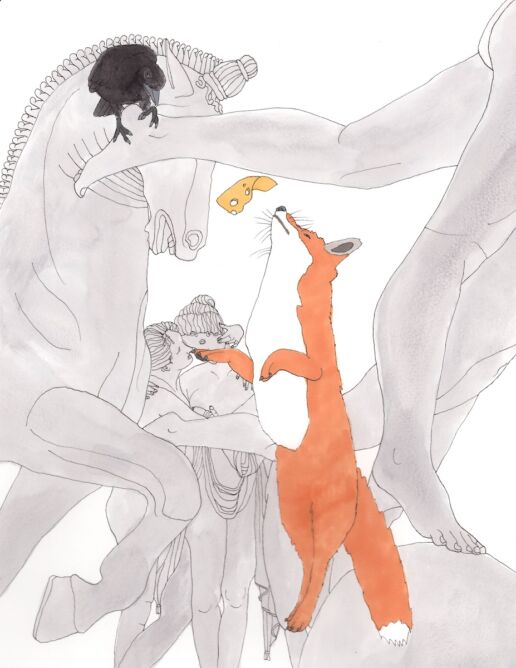ANTIQUITY – PELİN KIRCA
Known for her ability to turn associations of ideas into surrealistic games, Pelin Kırca tells us about the word “antiquity,” which became the focal point of her latest research.
When was the last time you used the word “antiquity”?
I’m working on the fables of Aesop, the Ancient Greek storyteller who is estimated to have lived during the 6th century BCE. So, I’ve been using the word “antiquity” pretty frequently lately.
What emotion does this word evoke in you?
The antiquity–particularly Greek and Roman culture–have played an absolute and fundamental role in the idealization of the West since the Renaissance. The Greek ideal formed the basis of aesthetics, philosophy, and medicine. Then suddenly, Aesop appears in the midst of this idea, telling us about limbs that rebel against the central power of the stomach. In Aesop’s world, animals talk and the wind argues with the sun. Aesop was a folk hero in Ancient Greece–a slave who used his wit to overcome his allegedly hideous master. A slave who wasn’t afraid to speak truth to those in power… Aesop’s rebellious, multi-layered fables turn the antiquity we idealize on its head by depicting reality.
Could you give us three new words for our next interview?
Curiosity, Ambiguity, Void


